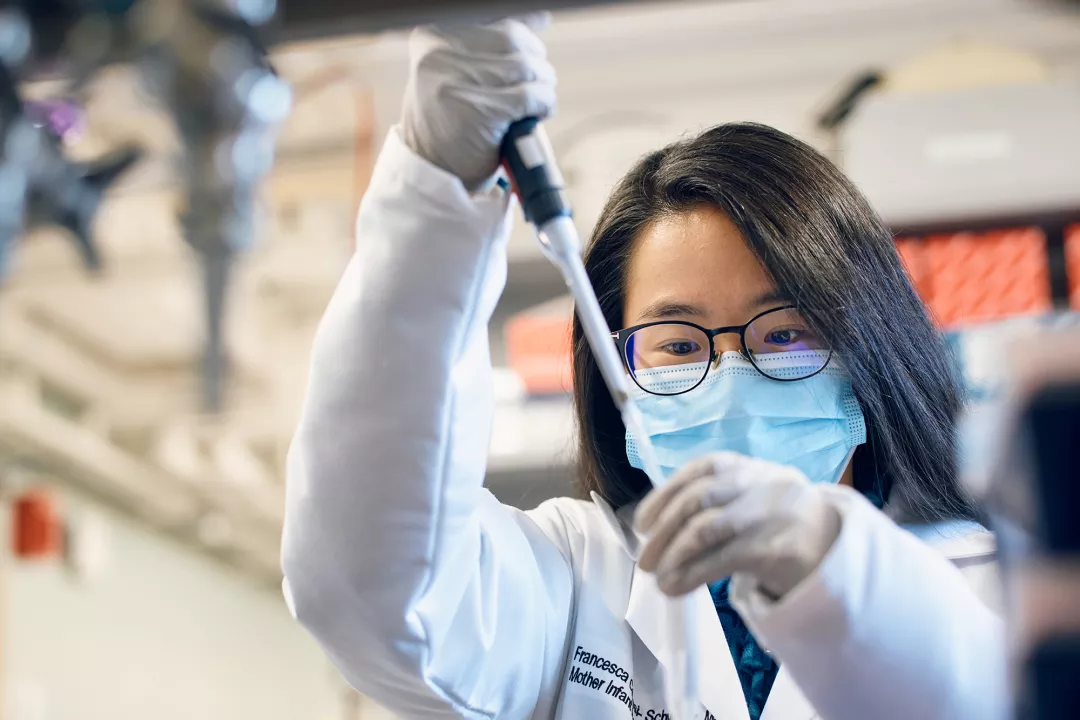Mr. Tupper, a patient and friend of Samuel Proger, MD (former Physician-in-Chief), shared Dr. Proger’s belief in the importance of supporting distinguished investigators to preserve and strengthen the Institution’s pre-eminence as an academic medical center. After his death in 1983, family members acted on Mr. Tupper’s desire to establish a research institute at the medical center he had grown to love and respect. The Tupper Research Institute was ultimately designed under the leadership of Sheldon M. Wolff, MD, Physician-in-Chief successor to Dr. Proger, and continues to prosper under Deeb N. Salem, MD, current Physician-in-Chief. Today, this focus on scientific investigation to address the most pressing health problems from bench to bedside continues through individual and corporate philanthropy to the Tupper Research Fund.

The Tupper Research Fund was established by the Tupper family in 2017 to provide unrestricted support to lab-based, clinical, and outcomes research within the Department of Medicine's Division at Tufts Medical Center. It is important to note that 100% of the Tupper Research Funds go towards actual research.
Some examples of the research and program that could benefit philanthropic support via the Tupper Research Fund include:
- Inhibiting the mechanisms that cause breast cancer to become aggressive and metastasize, leading to the loss of life. Dr. Rachel Buchsbaum's laboratory, Chief of the Division of Hematology/Oncology, has identified a major mechanism that seems to regulate aggressiveness and metastatic potential. Her research team has collaborated on the identification of novel molecules that inhibit this mechanism and block metastasis. They are working to advance these findings through early developmental studies, with the goal of bringing these molecules into early clinical trials in women with advanced breast cancers.
- Targeting the mechanisms that cause prostate cancer to spread to the bone, the principal source of suffering and loss of life from this disease. Through philanthropic funding, Dr. Paul Mathew in the Division of Hematology/Oncology has been able to identify two major mechanisms that likely underpin this behavior. Dr. Mathew and his research team are advancing novel drugs that have the potential to shut down the mechanisms that enable the survival of aggressive prostate cancer cells.
- Identifying simple, safe and inexpensive approaches to diabetes prevention. Over 86 million Americans are at risk for developing diabetes. Even with lifestyle changes, including diet, exercise and weight loss, many people still develop the disease. Based on research in the Division of Endocrinology, Diabetes and Metabolism, led by Dr. Anastassios Pittas and funded in part by philanthropy, vitamin D has emerged as a potential factor in diabetes risk. Dr. Pittas is currently leading a large, nationwide study to test the idea that vitamin D lowers the risk of developing diabetes.
- Investigating risk factors for infection in transplantation. Infections are associated with adverse outcomes in heart and solid organ transplantation. Researchers in the Division of Geographic Medicine and Infectious Diseases, under the leadership of Dr. David Snydman and Dr. Jennifer Chow, are studying risk factors toward the development of new, lifesaving treatments.
- Identifying strategies in patient care that minimize unnecessary tests and procedures, increase patients' participation in decisions affecting their care and decrease the cost of medical care. Under the direction of Dr. John Wong in the Division of Clinical Decision Making, this unique research applies to a wide range of complex diseases, including cancer, coronary artery disease, inflammatory bowel disease, osteoporosis and rheumatoid arthritis. The division is known as a world leader in connecting logical decision analysis principles to individual patients' care.
- Exploring the genes and pathophysiology of known risk factors for severe Babesia microti infection. Under the leadership of Dr. Edouard Vannier in the Division of Infectious Diseases, researchers are studying this infection, which is linked to the same tick that transmits Lyme disease and causes more severe disease in elderly and asplenic (absence of normal spleen function) patients.
With federal grant funding becoming increasingly competitive, we must rely on continued philanthropy to support the growth and development of our research program. Contributions may be used to recruit promising new faculty, sponsor postdoctoral research fellows, seed funding new ideas not yet developed enough for grant funding, or purchase cutting-edge equipment or technology tools to advance science.

